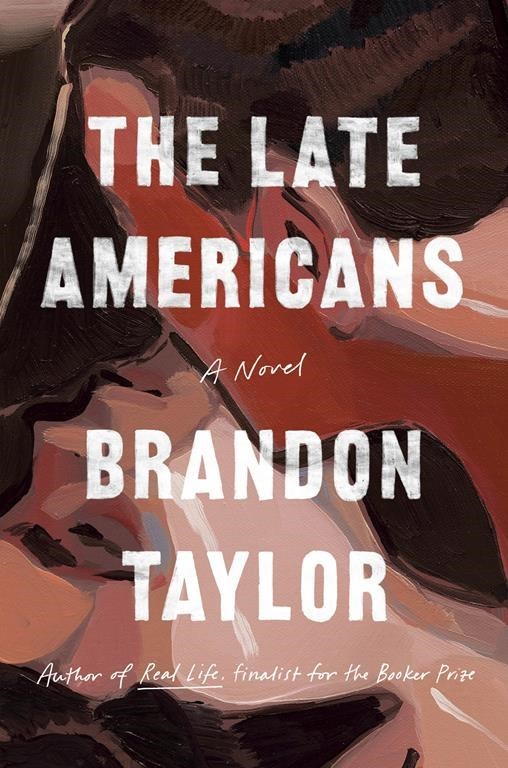“The Late Americans,” by Brandon Taylor (Riverhead Books)
Brandon Taylor burst onto the literary scene three years ago, publishing two widely acclaimed books in quick succession. Critics marveled at the way he seemed to have pivoted so effortlessly from a budding career as a scientist to someone almost incapable of bad writing, as one admirer put it.
Taylor himself spoke about approaching the messy business of creative writing in the systematic way of a scientist, setting a goal for himself of writing 10,000 words a day — an extraordinary amount. Many writers, including famous ones, are thrilled if they eke out 500. Clearly, his method paid off because this week Riverhead brings out “The Late Americans,” his third book in as many years.
The novel follows the lives and loves of a group of graduate students and townies in Iowa City, home of the Iowa Writers’ Workshop, where Taylor earned an MFA after getting a master’s degree in biochemistry at the University of Wisconsin-Madison.
In the first chapter we meet Seamus, a white grad student who believes in “poetry’s transformative force” but can’t seem to get the respect of the others in his seminar because he prefers to work in traditional forms like the villanelle, a type of 19-line poem. For 50-some pages we are inside his head, privy to his sarcastic rants about his classmates, who “wrote only about the present and its urgency.”
At first, the story seems like a sendup of campus cancel culture until Seamus meets Bert, a sinister, down-on-his-luck townie who triggers the youth’s “old Marxist guilt.” After they have sex, Bert puts out a cigarette on his face and almost strangles him. Yet at the end of the horrifying encounter, Seamus is thinking about a poem by James Tate.
In the next chapter Taylor explores the relationship between Fyodor and Timo. Both men are Black, but only Timo, a graduate student in math, grew up with money. Fyodor works at a meatpacking plant in town and Timo, a vegetarian, cannot abide his lover’s line of work. At first their differences make the relationship “a little hot” — until they don’t.
Taylor has spoken about his love for campus novels by writers like Elif Batuman (“The Idiot,” “Either/Or”) and Jeffrey Eugenides (“The Marriage Plot”). “The Late Americans” is a worthy addition to the genre, not because anything much happens but rather because Taylor is indeed a beautiful writer. His tautly constructed sentences are as concrete and vivid as the poems that the hapless Seamus adores.
Ann Levin, The Associated Press



